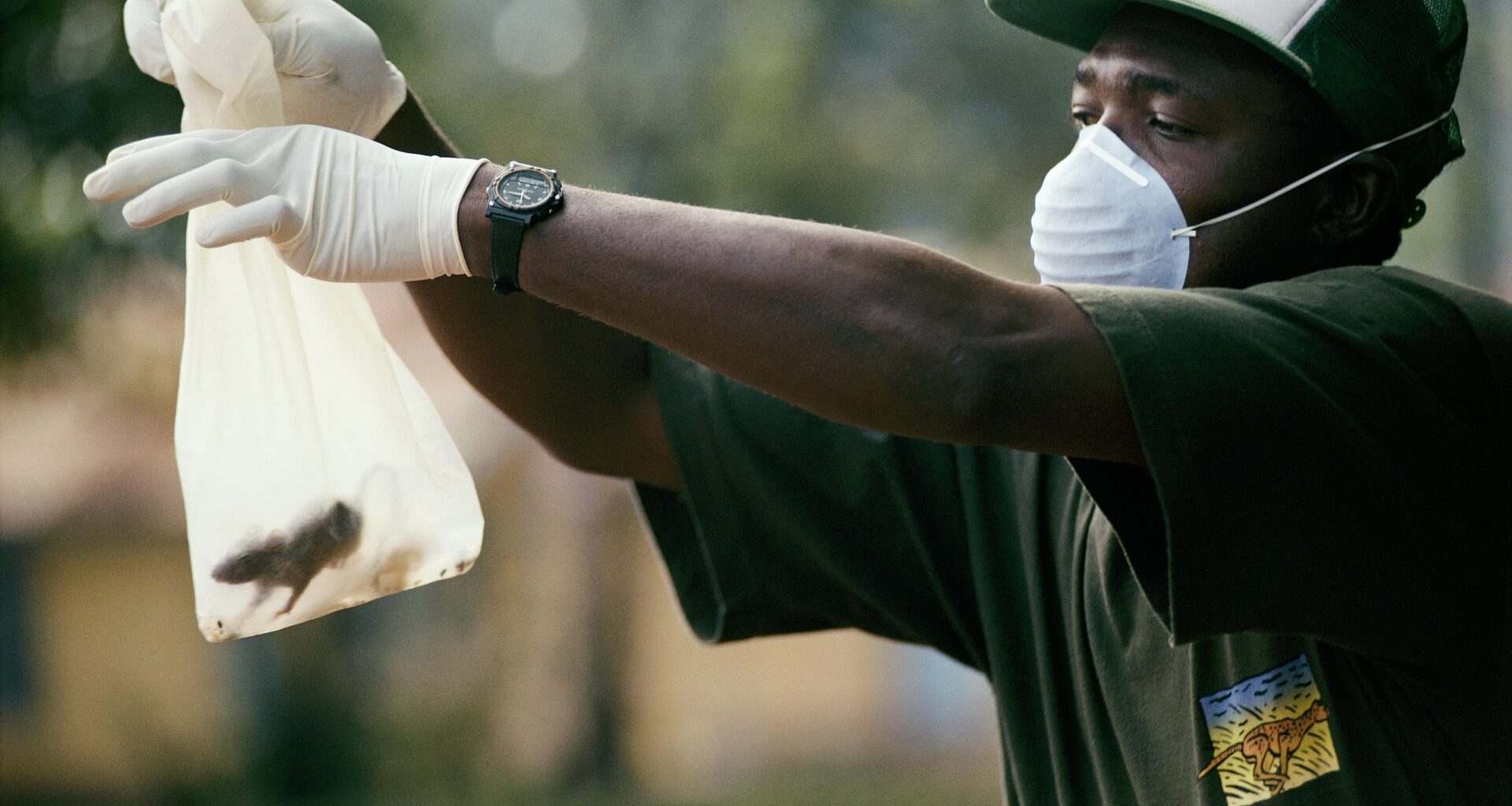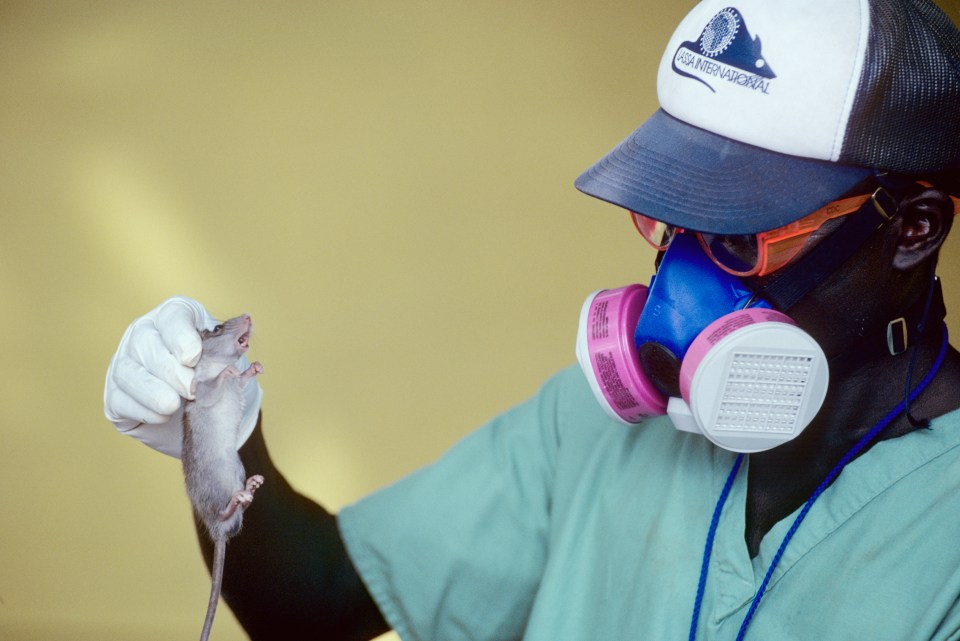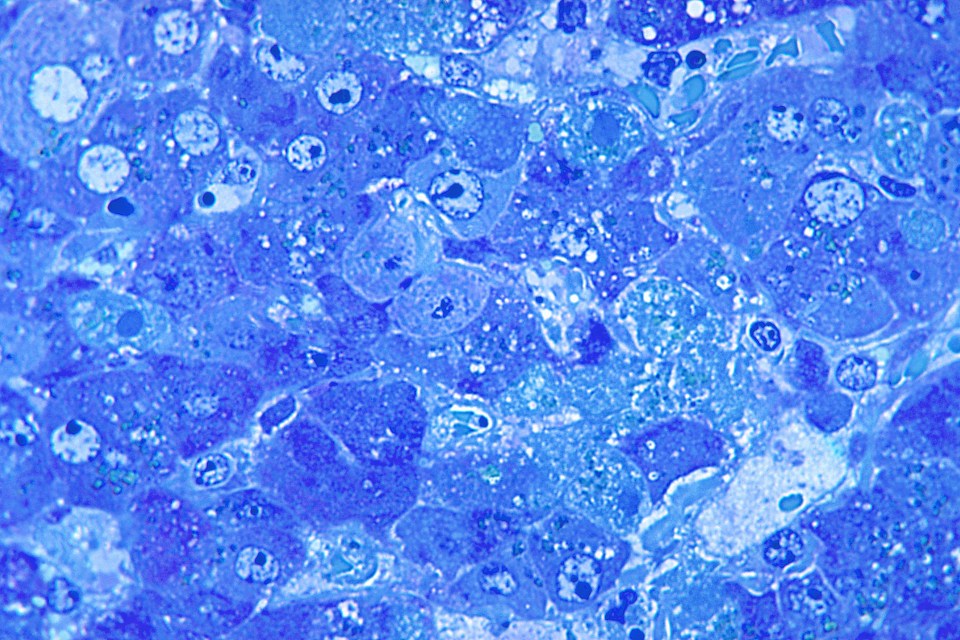AN OUTBREAK of horrifying ‘rat fever’ has infected 3,700 people and killed 122 since the start of the year.
Lassa fever – spread by infected rodents – is tearing through Nigeria, with health authorities issuing ‘stay at home’ warnings as the virus spreads through dozens of states.
6
There’s been a surge of Lassa fever cases in Nigeria this yearCredit: Getty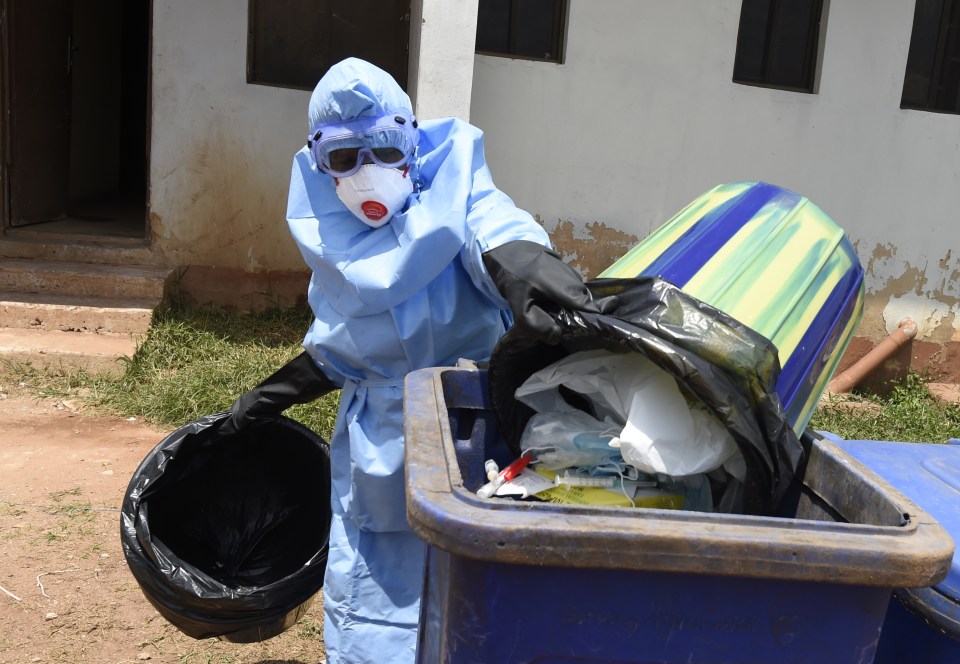
6
The virus is carried by ratsCredit: AFP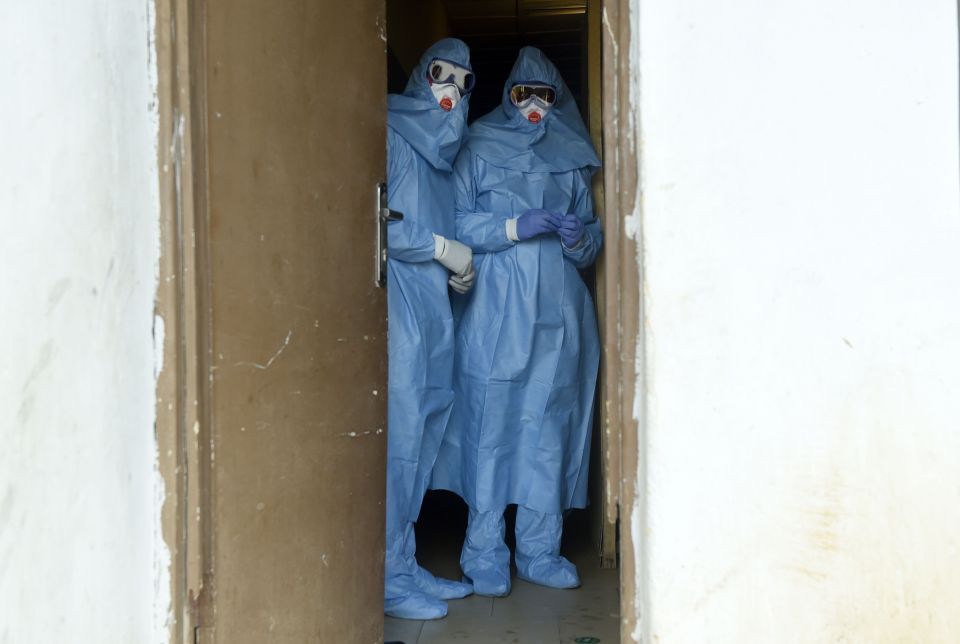
6
Health officials say at least 122 people have died from Lassa fever this yearCredit: AFP
In it’s most recent update on the outbreak, Nigeria’s Centre for Disease Control and Prevention (NCDC) said there had been 3,779 suspected cases, of which 659 were confirmed.
Three-hundered cases had been suspected in just one week (March 24-30) and three deaths.
This brings the total number of deaths reported so far this year to 122, the report said.
It means that the virus – which causes bleeding from the mouth, nose and eyes in cases of severe illness – currently has a fatality rate of 18.5 per cent.
Read more on disease threats
Eighteen Nigeria states have recorded at least one confirmed case of Lassa fever shave recorded at least one confirmed case, through it’s suspected that the virus has spread to as many as 33 states.
Seventy one per cent of all confirmed Lassa fever cases were reported in three states – Ondo, Bauchi and Edo.
Those in their 20s are most likely to be infected.
Pregnant nurses and doctors have been warned to “stay at home” while the virus reigns rampant.
It comes after health authorities detected a case of Lassa fever in the UK last month, in a patient who’d travelled from Nigeria to England.
The NCDC first raised the alarm over a spike in infections in December 2024.
Is little-known hMPV virus ravaging China the NEW Covid?
By the end of the year, 214 out of the 1,309 people confirmed to have Lassa fever had died.
Health workers in Nigeria have shared harrowing tales of trying to care for people struck down with the disease while struggling to get hold of PPE.
Dr Edeth Nkantah, a physician at the Federal Medical Centre, Jalingo and former chairman of the Nigerian Medical Association, told VaccinesWork: “All pregnant health workers have been asked to stay at home until the incidence of the disease comes down because Lassa fever is usually very severe in pregnant women.”
Dr Divine Njadze, who also works at the FMC, shared: “We may have up to 12 suspected Lassa fever cases in a day during the peak period.
6
It’s thought the virus has infected 3,500 peopleCredit: Getty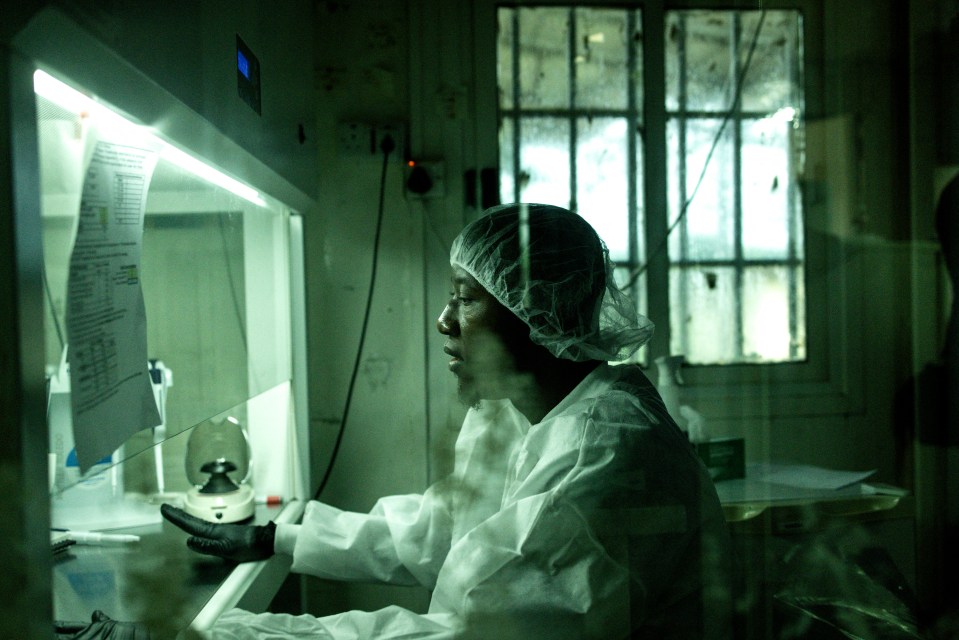
6
There is currently no cure or vaccine for the diseaseCredit: AFP
6
Health workers are battling to contain the virus with limited equipmentCredit: Getty
“Different doctors see the patients at intervals, so the PPE is never enough. Sometimes we run out of PPE.
“At times, we ask the patient to buy gloves, face masks and so on, which is not ideal.
“Other times, we buy the PPE from our pockets. The National Association of Residents Doctors also provides packs of face masks for us. There’s no prophylaxis for Lassa fever for now.”
Lassa fever is caused by the Lassa virus, which was first identified in 1969 after two missionary nurses died from the disease in the Nigerian town of Lassa.
Lassa fever in the UK
Health authorities detected a case of Lassa fever in the UK in March.
The patient travelled from Nigeria to England in late February while sick with the virus, according to the UK Health Security Agency (UKHSA).
It was only after they returned to the West African nation that they were diagnosed with the virus.
The discovery left UK health bosses racing to contain any potential spread of Lassa fever and trace all contacts of the unidentified individual.
But they said the risk to the public was “very low” and the virus “does not spread easily between people”.
Dr Meera Chand, from the UKHSA, said at the time: “Our health protection teams are working at pace to get in touch with people who were in contact with this individual while they were in England, to ensure they seek appropriate medical care and testing should they develop any symptoms.
“The infection does not spread easily between people, and the overall risk to the UK population is very low.”
Small numbers of Lassa fever cases have been spotted in the UK before, most recently in 2022.
A person in Bedfordshire died after catching the disease.
They were the third member of a family who recently returned to the UK from West Africa to become infected with the virus.
The three infections identified in the East of England were the first spotted since 2009.
Read more on Lassa fever here.
The virus is listed on the World Health Organisation’s list of notorious pathogens that have epidemic or pandemic potential.
The disease regularly crops up in parts of West Africa, particularly Guinea, Liberia, Nigeria and Sierra Leone.
The virus is carried and spread by a species of rats called Mastomys rodents, which rife in these countries.
In Nigeria, cases are recorded all year round with peak transmission periods within October to May every year, according to the NCDC.
People are most commonly struck down by Lassa virus after eating contaminated food or breathing in the virus.
They may also get it from the droppings of infected rodents littering floors, home surfaces, or in food or water.
Some people eat Mastomys rodents too, and they may catch Lassa virus when catching and preparing these rodents for eating, according to the UK Health Security Agency (UKHSA).
I have a bag at the entrance of my house where I put everything I wear when I return from work… to avoid putting my family in danger.
Dr Fyne Akubueze Federal Medical Centre in Owo, Ondo
Lassa virus doesn’t spread easily between people.
It can jump from one person to another if they have contact with the body fluids of someone who has Lassa fever, such as blood, saliva, urine or semen.
Most people with Lassa Fever make a full recovery but some people can get severely ill.
Up to 80 per cent of cases are without symptoms.
However, it can cause headaches, weakness, coughing, vomiting, diarrhoea, muscle pains and a sore throat.
In severe cases, the disease can affect many organs and can damage the body’s blood vessels.
This can lead to bleeding from the ears, eyes, nose, mouth and vagina, as well as breathing problems, facial swelling, seizures and chest pain.
There is currently no vaccine to treat or prevent Lassa fever.
Dr Fyne Akubueze, who has been at the forefront of managing Lassa fever at the Federal Medical Centre in Owo, in Ondo, a vaccine would make a more reliable “shield” against the virus than PPE and other hospital safety measures.
She told VaccinesWork: “We hope there will be a vaccine soon to protect everybody, including health workers.
“But in the meantime, maintaining a high level of hygiene is very important aside from using PPE.
“I have a bag at the entrance of my house where I put everything I wear when I return from work and wash them up.
“I do this to avoid putting my family in danger.”
Lassa Fever: Signs, symptoms and how to stay safe
The incubation period of Lassa fever ranges from six to 21 days.
The onset of the disease, when it is symptomatic, is usually gradual, starting with fever, general weakness, and malaise.
After a few days, headache, sore throat, muscle pain, chest pain, nausea, vomiting, diarrhoea, cough, and abdominal pain may follow.
In severe cases, facial swelling, fluid in the lung cavity, bleeding from the eyes, mouth, nose, vagina or gastrointestinal tract and low blood pressure may develop.
How to stay safe
UK travellers planning to visit areas at risk of Lassa fever should consider their plans carefully, in consultation with a travel health specialist.
All travellers to Lassa fever endemic areas should:
- Avoid contact with anyone with symptoms
- Avoid contact with blood and body fluids and items that might have been contaminated with blood and body fluids, like clothes, bedding or medical equipment
- Avoid areas with a risk of contamination with rat urine or droppings
- Avoid eating, cooking or preparing any meat from an unknown source
- Always wash and peel fruit and vegetables carefully
- Store food in rodent-proof containers
- Follow good food, water and personal hygiene advice, including careful, regular hand washing with soap and water (or alcohol gel if soap and water is unavailable)
- Follow safer sex advice – always use a condom
- At funerals, mourners should avoid all contact with the deceased, their body fluids and their personal property
Check each Country Information page here for destination specific news and outbreaks.
Source: The WHO
